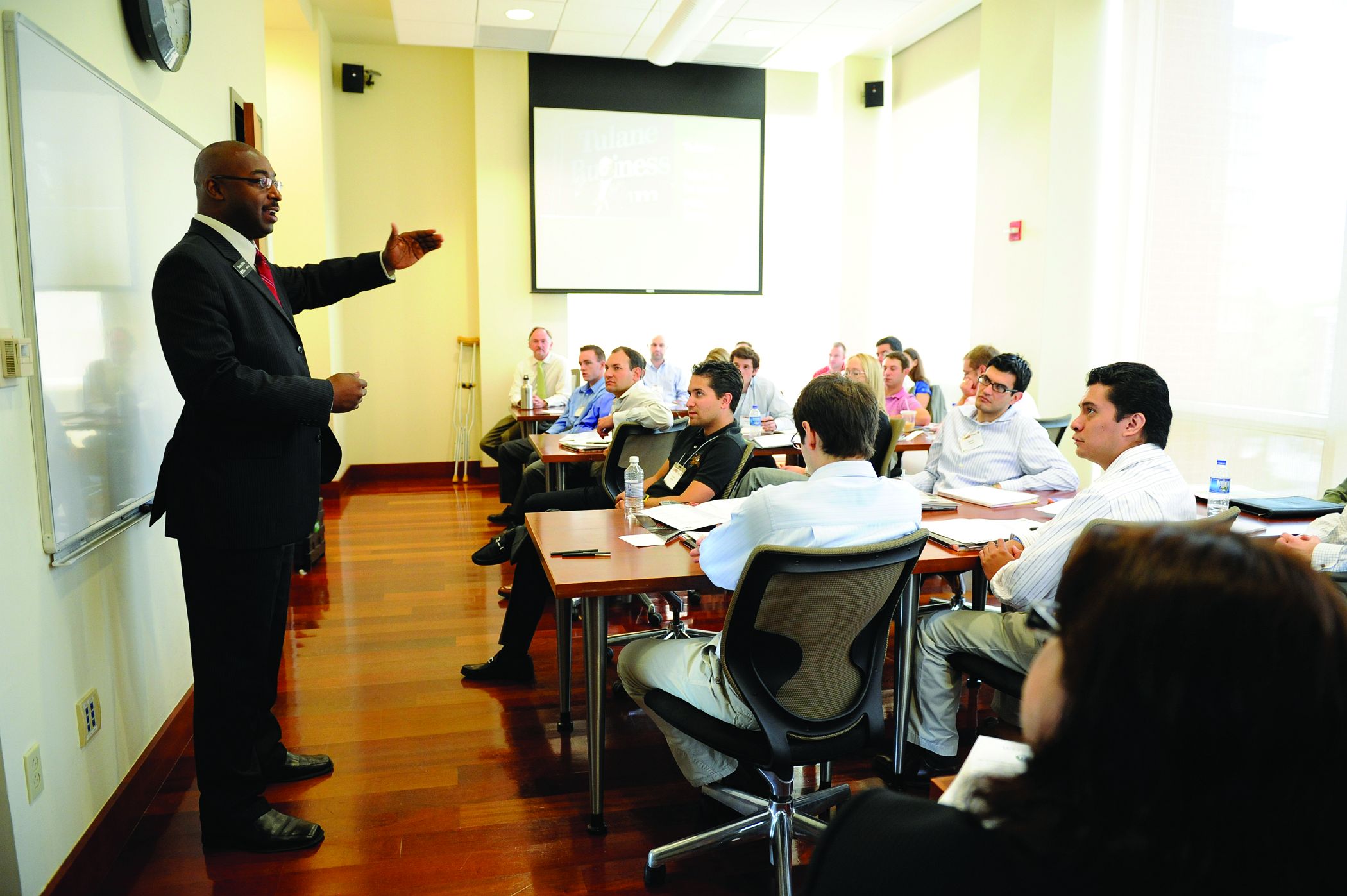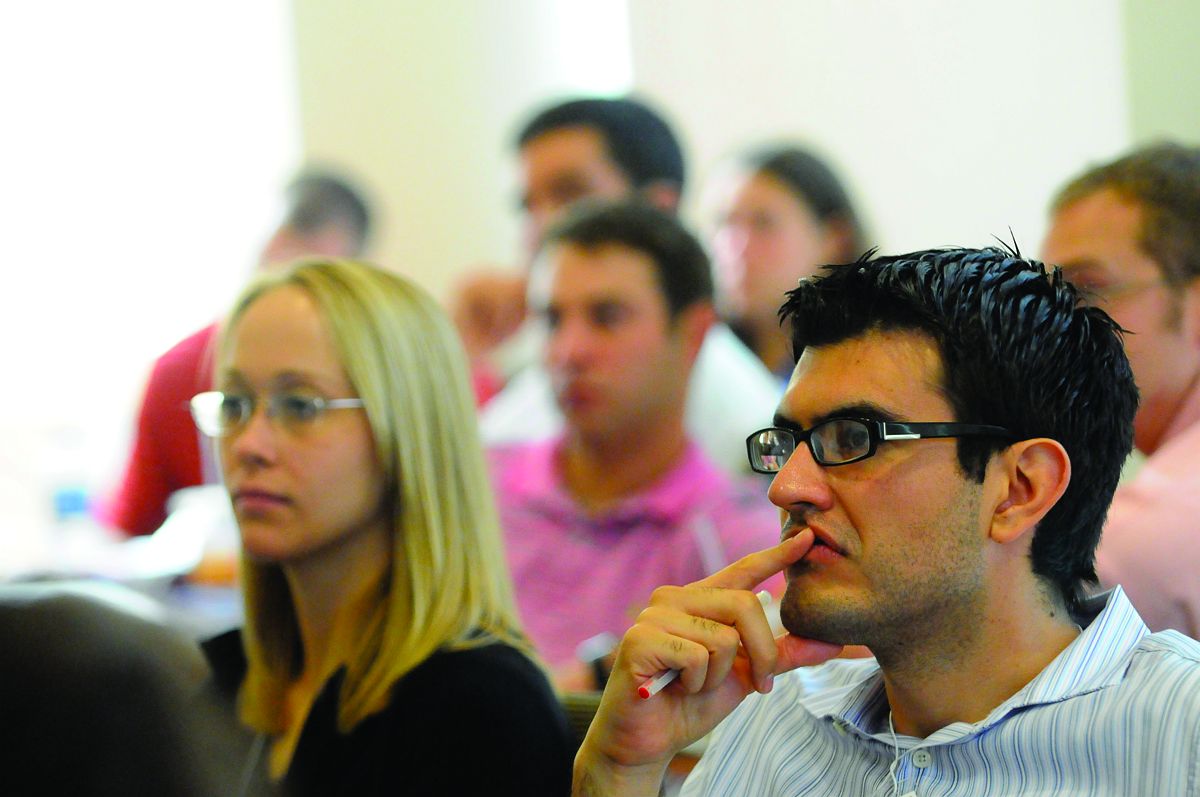
Shane Price (MBA'09) spoke to Latin American academic advisors about Burkenroad Reports as part of a special seminar organized by the graduate admissions office
Latin America represents a growing market for management education, but recruiting those potential students—many of whom are unfamiliar with U.S. business schools—can be difficult. The Freeman School has developed an innovative way to target that market, one that focuses not only on the students but also on the people who advise the students.
In April, Freeman hosted its second annual seminar for Latin American educational advisers. More than a dozen advisers from educational and governmental organizations across Latin America traveled to New Orleans for a full-day seminar designed to introduce them to the Freeman School and provide them with the information they need to help students decide if Freeman is the right choice for them.
“We want to give advisers an opportunity to learn about Freeman and see firsthand what differentiates us from other schools,” says Margarita Ahumada, assistant director of graduate admissions. “We travel to meet with advisers in Latin America on a regular basis, but there’s no substitute for letting them see our facilities and resources in person. This is a great way to develop a closer working relationship with advisers in Latin America and the rest of the world.”
 The seminar included a presentation on the school’s overall strategy and vision, sessions on specific programs including Burkenroad Reports, the Levy-Rosenblum Institute, the Darwin Fenner Fund and the Tulane Energy Institute, and a discussion of MBA and MFIN curricula, admissions and financial aid. In addition, the seminar was scheduled to coincide with the Tulane Business Plan Competition, enabling guests to attend that event and the evening’s Tulane Council of Entrepreneurs Awards Gala.
The seminar included a presentation on the school’s overall strategy and vision, sessions on specific programs including Burkenroad Reports, the Levy-Rosenblum Institute, the Darwin Fenner Fund and the Tulane Energy Institute, and a discussion of MBA and MFIN curricula, admissions and financial aid. In addition, the seminar was scheduled to coincide with the Tulane Business Plan Competition, enabling guests to attend that event and the evening’s Tulane Council of Entrepreneurs Awards Gala.
Claudia Carrillo, an adviser with EducationUSA in Chile, was interested in learning about both the curriculum and some of the less tangible aspects of the school. “The feeling I’m getting from Tulane is that the people are very warm,” Carrillo says. “Besides the fact that it has a very good faculty and it’s a very good school with the necessary infrastructure, there’s something extra. People are just more welcoming, and that is very important for people from South America because our culture is a little more like that.”
“People in Brazil are very interested in top 10 schools, but it’s important to show them that a school like Tulane might be able to offer them more than a top 10 program,” adds Miriam Viniskoske, an adviser with Brazil’s the Point Academic. “I think that by coming here and seeing the work Freeman is doing, I can help them understand that they can study in a school that’s not that big but is among the oldest and the best in the United States.”

